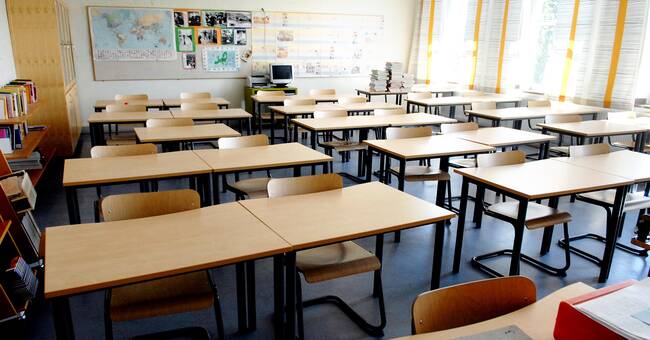The 30 researchers, who are all part of the group Vetenskapsforum covid-19, write that the hypothesis that children rarely infect others is questioned in new research.
Children feel best at school
The main argument for keeping schools open is heavy, the authors write.
It is about children feeling best when they are allowed to go to school.
But the government and the Public Health Agency have also based their decisions to keep schools open on the fact that children rarely become seriously ill, and often go through the infection without any symptoms.
And on the hypothesis that children rarely infect others, according to the researchers.
"More knowledge has been gained during the autumn, and even though some of the issues remain, and there is no consensus, there are increasing indications now that school children, including primary school children, can also be effective spreaders," they write.
Evidence in FHM's reports
A sign that school children can be effective spreaders of infection can be found in the Public Health Agency's weekly reports, it is written.
Such a report shows that between week 47 and week 50, primary school was the most important environment for corona outbreaks in environments for the general public.
During one of these weeks, primary school accounted for 45 percent of all corona outbreaks, it is written.
The Public Health Agency's comment on the figures has been that "experiences shared from the regions' infection control units regarding infection tracing show that staff at the school are more often infected by their colleagues and less often by the students".
However, that answer is questioned by the 30 researchers who point out that no basis for such a claim has been presented.
The group further writes "that the teachers' rooms would constitute such a prevalent hotbed of infection that these alone would account for 45 percent of the country's outbreaks in public environments defies all reason."
Tegnell: Ongoing dialogue
During Tuesday's press conference, Anders Tegnell was asked what he thinks about a possible closure of the upper secondary schools.
Something that, among other things, has been advocated by the infection control in Blekinge.
- We have an ongoing dialogue with the National Agency for Education and the Government Offices to discuss how it could possibly be done without having too great harmful effects.
There is a very big difference between high school and high school when it comes to the opportunity and capacity to conduct distance learning.
It is not an easy trade-off, but we have a dialogue to try to land in a good model.

